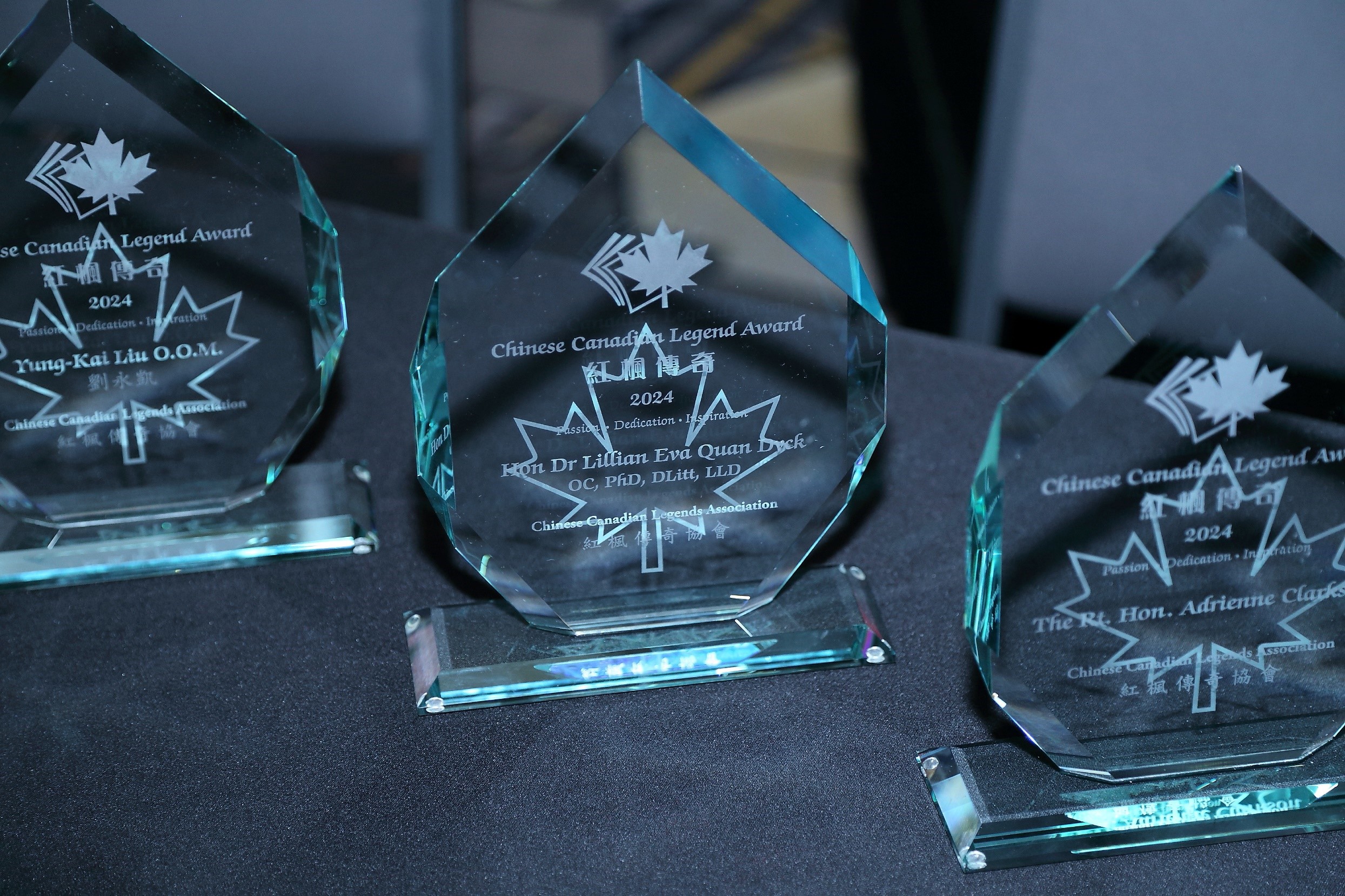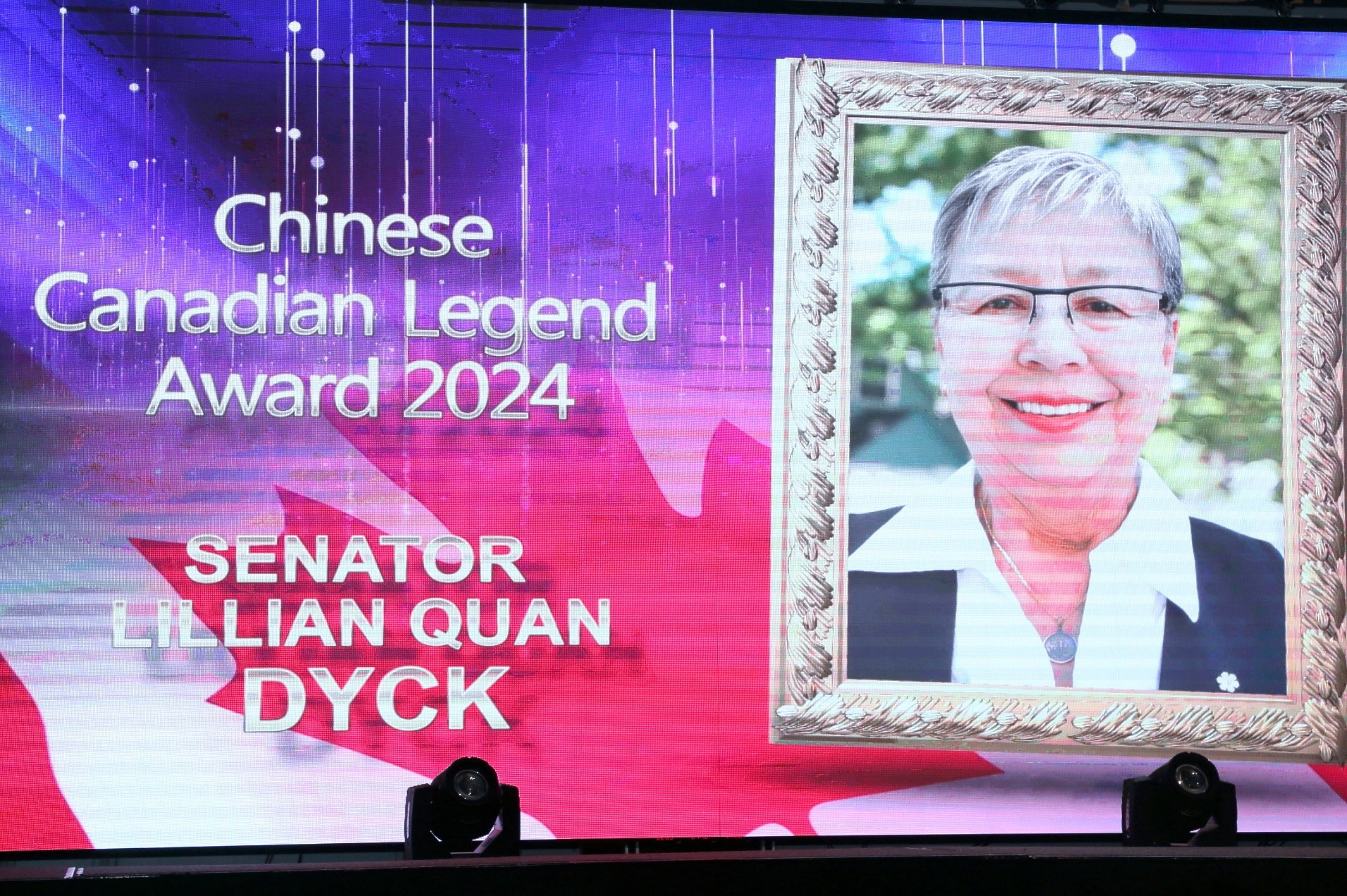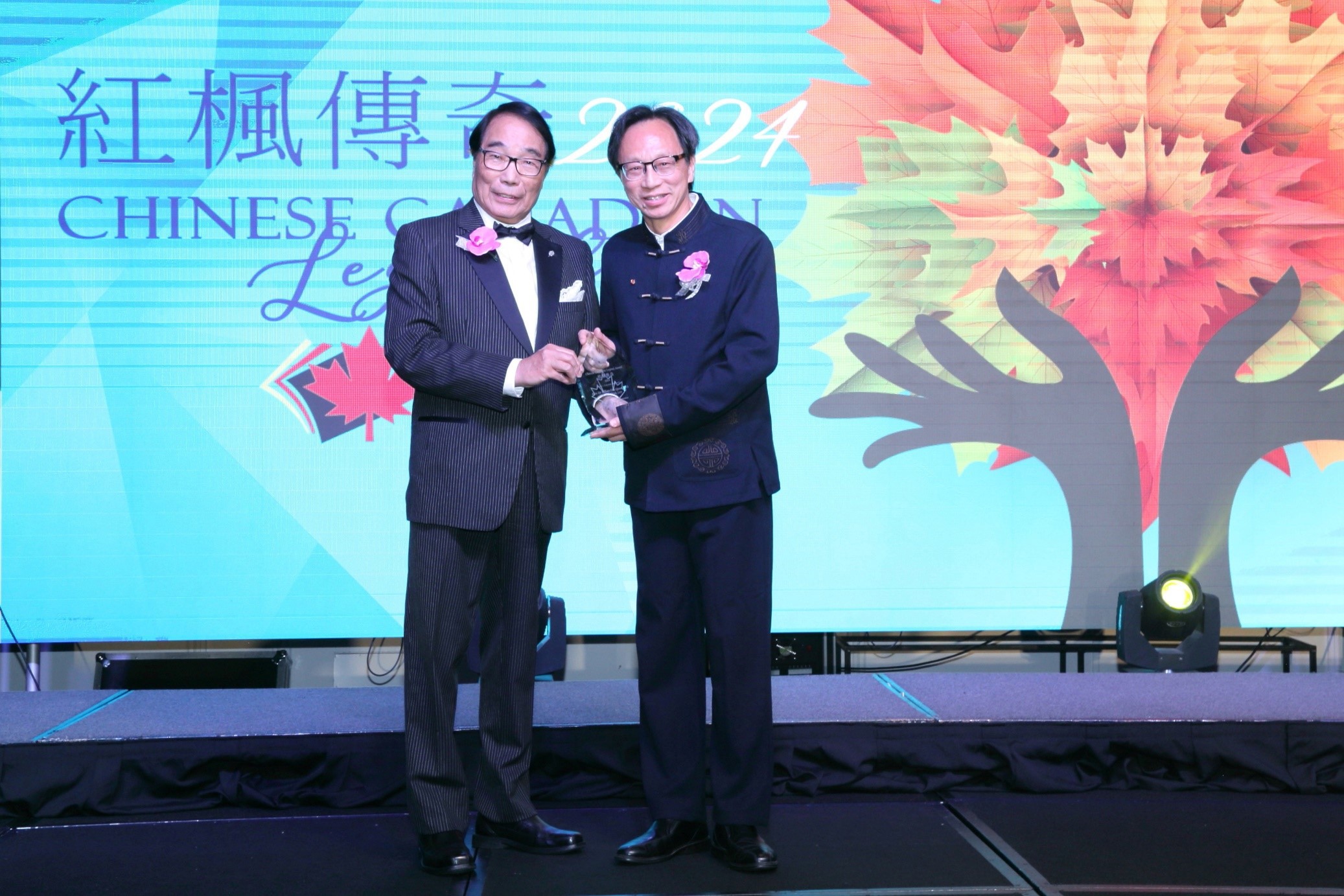Tribute to Former Senator The Honourable Lillian Eva Quan Dyck on being named a Chinese Canadian Legend at the 2024 Awards Gala
Distinguished guests, friends, colleagues, ladies and gentlemen, good evening. I have the most pleasant task this evening to offer a tribute to the Honourable Lillian Eva Quan Dyck, my former Senate colleague and a recipient of this year’s Chinese Canadian Legend Award.
Lillian is not able to receive the award in person tonight. She has, however, prepared some remarks, which I will read on her behalf in a little while.
I had the chance to speak with Lillian over the phone yesterday and she expressed deep regret that she was unable to make the trip to Toronto. She told me of the importance that the award means to her, and to the memory of her father, from whom she derives her Chinese heritage.
Her mother, however, was Cree, from the George Gordon First Nation in Saskatchewan. The circumstances that led to a marriage between an indigenous woman and a Chinese man are on the one hand the stuff of romance novels, and on the other hand a cruel reminder of the trying circumstances facing both indigenous and Chinese people in the first half of the 20th century.
Lillian grew up thinking she was pure Chinese because her mother, who was a residential school survivor, did not want her daughter to be burdened by the knowledge of being indigenous, and to face the prejudice that would have come with it.
Chinese people, however, were hardly a privileged class in the middle part of the last century. In fact, during the twenty two years before Lillian was born in 1945, there was virtually no Chinese immigration to Canada, thanks to the Exclusion Act of 1923. Even so, Lillian’s mother judged that the misery of being Chinese in Canada was better than the misery of being indigenous. It is a sad commentary on the state of affairs in Canada at that time but in some ways also an uplifting one about how many Chinese immigrants to Canada found solidarity, succour, friendship, and love from their First Nations brothers and sisters.
Lillian eventually learned about her Cree roots and grew to embrace her indigenous heritage — with gusto. Among her many accomplishments as a Senator, she is remembered for her role as a long-serving chair of the Senate Standing Committee on Aboriginal Affairs, which produced many groundbreaking studies under her leadership. Lillian also changed Canadian law and its treatment of First Nations, especially indigenous women. Shortly before she retired, she shepherded through the Senate a landmark bill to correct gender discrimination in the Indian Act. The restoration of indigenous status for indigenous women who married non-indigenous partners was in many ways the completion of her identity quest. She believed it was not enough to be indigenous in one’s heart and soul, it was also necessary for the state to recognize it.
She did all of this without turning her back on her Chinese roots. Some years ago, she made a pilgrimage to Guangdong to see her father’s birthplace, and to visit the ancestral home. She mused with me that the house would still be in the family if her dad had gone back to China, perhaps with her in tow. Imagine an alternate universe where Lillian Eva Quan Dyck is unleashed on post-revolution China. What a great movie that would be.
The movie that we do have is Cafe Daughter, which was released last year and can be viewed on CBC Gem, among other streaming platforms. It is based on the play by Kenneth Williams, which has been performed numerous times across the country to much acclaim.
One of Lillian’s dreams, which she shared again with me yesterday, is for the play to be translated into Chinese and performed in China. If anyone in the audience tonight has ideas on how we can make that happen, please see me. I am sitting at Table 30.
There is so much more that can be said about The Honourable Lillian Eva Quan Dyck, but what needs to be said is best said in her own words, which I am now pleased to convey to you:
"I am truly honored and humbled to receive a prestigious 2024 Chinese Canadian Legends award. I had hoped to be able to attend the dinner and ceremony, but am unable due to health issues. My apologies.
As you know, my roots are Chinese and Cree. My father, Quan Leen Yok, came to Canada in 1912 as a 14 yr old seeking Gold Mountain fortunes as a way to support his birth family back home. As a young man he was able to go home to China three times for 2 year periods. He married and had 2 children but due to the Chinese Exclusion Act, he was unable to bring them to Canada. My mom, Eva, my brother Winston and I were his second family.
Dad never spoke about the racism he faced. He was a hard worker and for a time was the owner of his own restaurant in North Battleford, SK. His lifelong dream was to bring his Chinese son to Canada, but the racist law killed that dream.
From my dad, I learned the value of hard work and perseverance despite all the obstacles. He did his best to be part of the community and provide good service, good food and good feelings in our café.
I accept this prestigious award in honor of my dad, Quan Leen Yok, known affectionately as Happy Quan, who died in 1962. He was always proud of me, his little girl, and had no idea that she would go on to become a neuroscientist and senator of Canada.
Thank you for this wonderful award. And I am especially pleased that the book will document my story and some of my family’s story".
As it turns out, Lillian’s birthday is next week, so I want to take the opportunity to send her, on behalf of all of us, warmest congratulations on receiving this award, and a very Happy Birthday!



